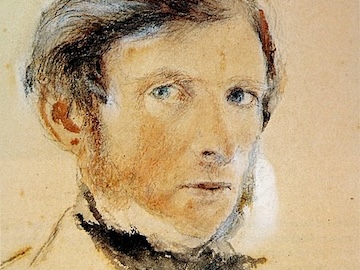79
Make as many words as you can using the letters of one nine-letter word. Can you beat our score?
See All Words
aced acer acid acre acrid acted aerate aerated aide aired arcade arced area aria arid cadet cadre carat card cardie care cared caret cart carted cater catered cedar cede cert cider cite cited crate crated create created cred credit cree creed cried dace dare dart data date dear dearie deceit deer deter dice dicta diet dieter dire direct dirt drat eater edict edit eider eradicate erect iced idea irate race raced radiate raid rate rated react reacted read recite recited reed rice ride rite tare tear teed tiara tide tied tier tiered tirade tire tired trace traced trad trade tread tree triad trice tried
eradicate radiate arcade create credit deceit direct recite tirade acrid acted aired cadet cadre carat cared caret cater cedar cider crate creed cried deter edict erect irate raced react trace trade tread trice tried aced acid acre aide area aria arid acer card care cart cede cite dare dart date data dear deer dice diet dire dirt drat edit iced idea race raid rate read reed rice ride rite tear tide tied tier tire tree
aced
acer
acid
acre
acrid
acted
aerate
aerated
aide
aired
arcade
arced
area
aria
arid
cadet
cadre
carat
card
cardie
care
cared
caret
cart
carted
cater
catered
cedar
cede
cert
cider
cite
cited
crate
crated
create
created
cred
credit
cree
creed
cried
dace
dare
dart
data
date
dear
dearie
deceit
deer
deter
dice
dicta
diet
dieter
dire
direct
dirt
drat
eater
edict
edit
eider
eradicate
erect
iced
idea
irate
race
raced
radiate
raid
rate
rated
react
reacted
read
recite
recited
reed
rice
ride
rite
tare
tear
teed
tiara
tide
tied
tier
tiered
tirade
tire
tired
trace
traced
trad
trade
tread
tree
triad
trice
tried
Tags:
Polywords
(16)
Think and Speak
(39)
80
As Lord Marmion lies dying on Flodden Field, there is no one near to tend him but the woman he has wronged.
It is 1513, and Lord Marmion has been mortally wounded on the battlefield of Flodden. As he lies there, his lifeblood ebbing away, a woman kneels beside him. Clare feels no love for him, and the ungoverned passion he feels for her has spread death and dishonour all around. Yet her heart is not as hard as his.
Read
Tags:
Copy Book
(77)
81
We should not force ourselves and ‘our values’ onto the writers of the past.
In Sesame and Lilies, John Ruskin warned us not to try to manipulate the great writers of the past into agreeing with us or our times. And if we have so little respect for them as to want to try, we would be better off not entering the ‘court of the past’ at all.
Read
Tags:
Copy Book
(77)
82
On his first night in a school dorm, Arthur dared not do anything without seeking approval — with one exception.
Dr Thomas Arnold, the (real life) headmaster of Rugby School, has decided that it would settle Tom Brown down to be given some responsibility; so he has asked Tom to take a rather delicate new boy, thirteen-year-old Arthur, under his wing. Tom is called to action from Arthur’s first night in the dormitory.
Read
Tags:
Copy Book
(77)
83
Use these nouns in sentences of at least ten words.
This exercise was given in Clay’s Think and Speak (1929).
“Each questioner calls upon an opponent and sets a noun to be used in
a sentence of no less than ten words.” Those who are playing this game
on their own may find these nouns useful:
Iwake IIaward IIIbreakfast IVchildhood Vtension VItitle VIImanager VIIIdepth IXheart Xice XIimplement XIIhunt
Be sure to use your word as a noun. In
“My initials are the same as my father’s, so the misunderstanding was quite natural”, the
word ‘initial’ is a noun; but in “The initial impression given
by my visitor was not at all favourable” it is an adjective, and in “Just let me initial
these slips and I’ll be ready to leave” it is a verb.
See more Jigsaw Sentences
Tags:
Nouns
(1)
Post Box
: Help Available
84
Richard Addinsell: Tom Brown’s Schooldays: Overture
Tags:
Music Video
(27)



